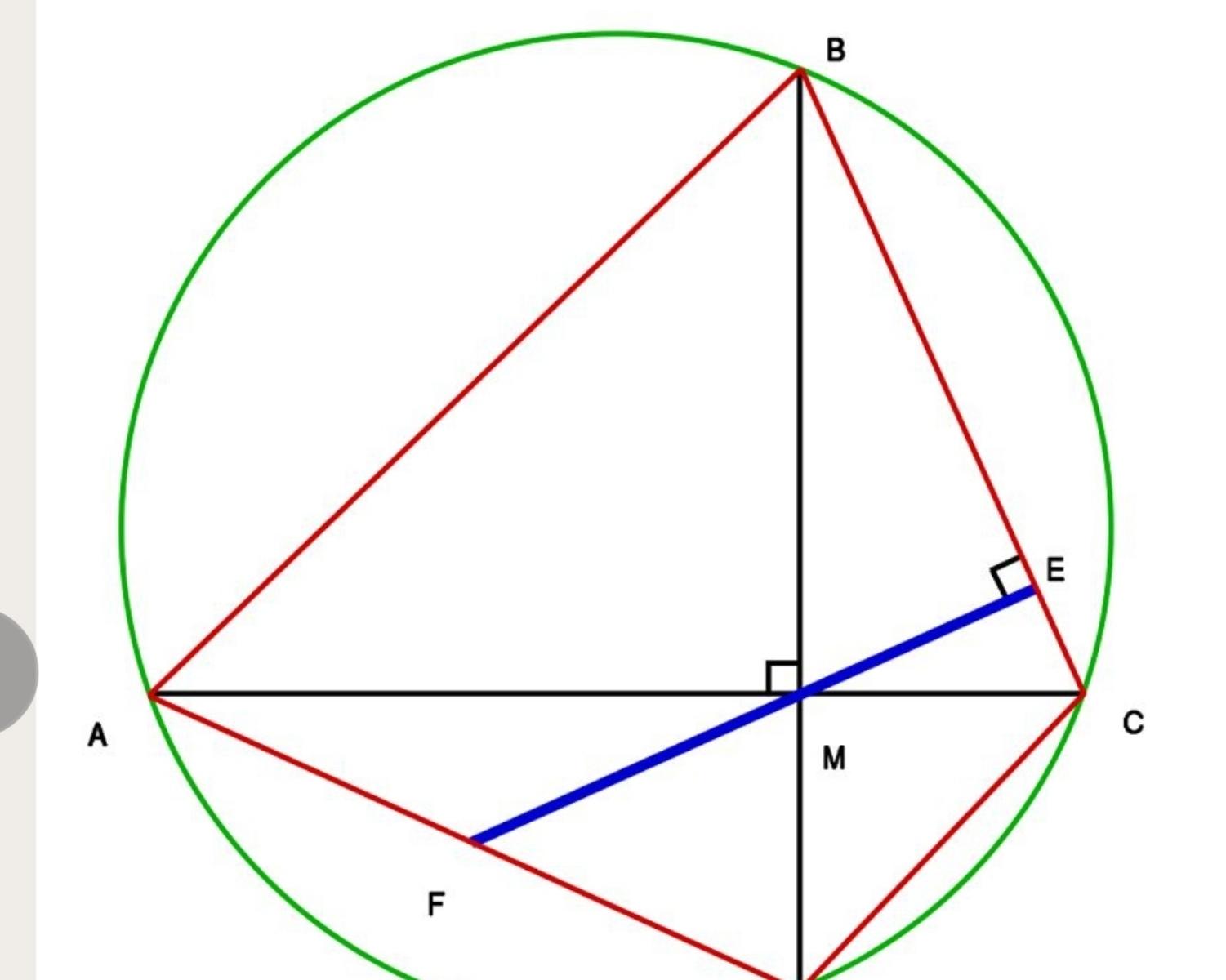8. Brahmagupta’s Theorem
Brahmagupta theorem states that,
If a cyclic quadrilateral is orthodiagonal (i.e., has perpendicular diagonals), then the perpendicular to a side from the point of intersection of the diagonals always bisects the opposite side.”
Geometrically, this theorem means that, in a cyclic quadrilateral ABCD, diagonals AC and BD are perpendicular to each other. The intersection of AC and BD is M. Drop the perpendicular from M to the line BC, calling the intersection point E. Let F be the intersection of the line EM and the side AD. Then, according to the theorem, F is the midpoint of side AD.
5
7 reads
CURATED FROM
IDEAS CURATED BY
卐 || एकं सत विप्रा बहुधा वदन्ति || Enthusiast || Collection Of Some Best Reads || Decentralizing...
The idea is part of this collection:
Learn more about education with this collection
Basic survival skills
How to prioritize needs in survival situations
How to adapt to extreme situations
Related collections
Similar ideas to 8. Brahmagupta’s Theorem
Maintaining Your Audience's Interest
Now that you’ve captured the audience, you have to maintain their interest. This can take different formats:
- Problem/Solution: This is commonly used when introducing a product or innovation, using the Monroe Sequence: Draw attention, Establish need, ...
Read & Learn
20x Faster
without
deepstash
with
deepstash
with
deepstash
Personalized microlearning
—
100+ Learning Journeys
—
Access to 200,000+ ideas
—
Access to the mobile app
—
Unlimited idea saving
—
—
Unlimited history
—
—
Unlimited listening to ideas
—
—
Downloading & offline access
—
—
Supercharge your mind with one idea per day
Enter your email and spend 1 minute every day to learn something new.
I agree to receive email updates
